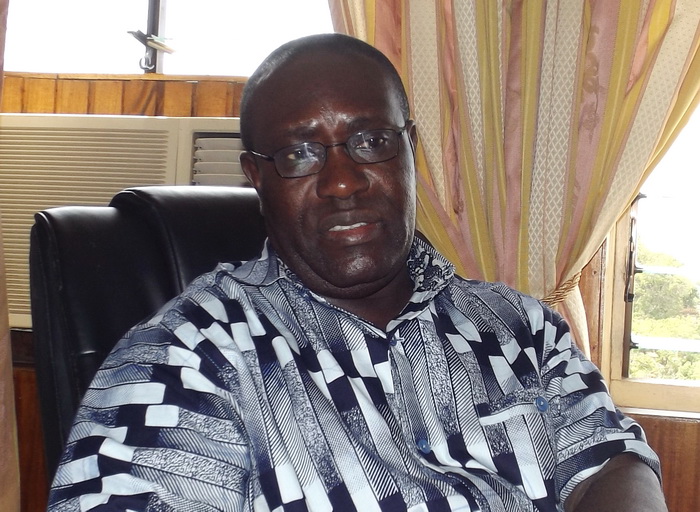
Meeting workers' expectation over pensions: TUC demands proof from NPRA
The Trades Union Congress (TUC) has said it will support the planned migration of lump sum payments from the Social Security and National Insurance Trust (SSNIT) to corporate trustees next year only after the National Pensions Regulatory Authority (NPRA) has proved to labour that the exercise will not make prospective retirees worse off.
The Secretary-General of the TUC, Dr Anthony Yaw Baah, told the Daily Graphic that information available to organised labour indicated that the trustees would require more time to invest workers’ contributions before they could reach the level of lump sums equal to or more than what SSNIT would have paid.
That, he said, was because the contributions of most public sector workers was transferred from the Temporary Pension Fund Account (TPFA) at the Bank of Ghana (BoG) to corporate trustees “just last year”, making it impossible for those funds to yield “meaningful returns” that could meet the expectations of workers and the pension reforms exercise in general.
While at the TPFA from 2010 until they were transferred, the contributions reportedly attracted yields equivalent to treasury bill rates.
Final lap
The position of labour on the matter follows recent announcements by SSNIT that it will, from 2020, start paying only monthly pensions to retirees, while privately managed pension schemes take over the payment of lump sums to them.
The planned shift in the payment of lump sum from SSNIT to the schemes next year is the final lap of a 10-year pensions reforms exercise that kicked off in 2010.
It was meant to improve pension payouts and make pensions an integral part of economic development.
The reforms brought with them a three-tier pension scheme — compulsory tiers one and two for formal sector workers and a voluntary third tier that is open to both formal and informal workers.
Read also
Pensioners demand 20% increment
GH¢3.1 billion second tier pension transferred into custodian accounts — Labour Minister
‘NPRA’s directive to SSNIT will result in financial crisis’
SSNIT lump sum ends 2019
NPRA meets
Given that the reforms were aimed at improving the lot of workers in the areas of monthly pensions and lump sum payouts, Dr Baah said, that objective would be defeated if the country went ahead to implement the final lap of the exercise — the migration of lump sum payment from SSNIT to private schemes — in a manner that disadvantaged workers.
As a key stakeholder of the reform exercise, he said, organised labour would not countenance that.
“Our position is that no pensioner in 2020 should receive less lump sum than what the person would have received if he/she were on SSNIT.
“That is the principle upon which we are suggesting that if, after we have looked at all the scenarios, we find that people are getting less than what they would have got under SSNIT, then we need more time for the scheme to invest the funds to get more money before we start putting people on the new scheme,” Dr Baah said.
A source at the NPRA told the Daily Graphic that the board and the management of the industry regulator had been meeting over the matter.
According to the source, the meetings were expected to conclude last week, after which the NPRA would meet SSNIT for further discussions before arriving at and announcing a definite position on the planned migration.
Implementation challenges
Until last year, tier two contributions of public sector workers were lodged in the TPFA at the BoG, awaiting the full establishment of the schemes and the completion of paperwork to allow for their transfer to the relevant private sector schemes for management.
Using that as basis, Dr Baah wondered if investing those funds would have “yielded anything meaningful” for workers.
“Not only that; there are still public sector workers who do not know to which schemes they belong. So there are still implementation challenges that are being sorted out and I think that we need more time,” he said.
Expert opinion
The migration of lump sum payments from SSNIT to the private schemes was initially scheduled to take place in 2014 but was shifted to 2020 to ensure that private schemes were well established to take workers’ contributions, then at the TPFA at the BoG, invest them and be able to pay lump sums when the time was due.
When contacted, a consultant on pensions, Mr Daniel Aidoo Mensah, said the TUC and workers in general would be better off pushing for the relevant interest to be paid on the funds that were recently moved from the TPFA to the private schemes.
He said the union’s push for a shift in the implementation date would not improve the amount workers would be paid if the funds did not attract the required interest.
“Pension funds are supposed to be invested and there was a date for the implementation. So whoever was keeping the money from day one till the time that he paid the money should pay interest on it because changing the implementation date will not change anything,” Mr Aidoo, who was the first acting Chief Executive Officer of the NPRA, said.
Pass credit
Started in 2010, the national pension reforms are envisaged to ensure adequate, sustainable and improved benefits that guarantee retirement income security for workers.
The reforms are anchored on the National Pensions Act, 2008 (Act 766), which established the three-tier scheme, to be regulated by NPRA.
The law allows SSNIT to manage tier one contributions of workers, while private schemes are allowed to collect and invest tiers two and three contributions.
Under the current arrangement, SSNIT will stop lump sum payment next year, although it will continue to pay monthly pensions.
With regard to 2020, however, the trust is due to pay pass credit, which refers to the pension contributions and the accompanying returns of a worker with SSNIT prior to the coming into force of the three-tier scheme in 2010.
